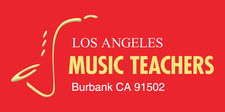For true music lovers, the piano is the mother of all instruments. The piano gives such rich sounds with each key that is pressed, to not just the person playing, but also all who listen to it. The piano is considered to be the best instrument all around due to many reasons. For one, it is the only instrument that can play all 88 notes on the musical scale. The notes played can be higher and lower than other instruments. The piano is basically the base foundation for all other musical instruments. If you're interested in taking Piano lessons on Zoom or In Person or In-Home in Burbank, Glendale or North Hollywood, we have some of the best piano lessons in Los Angeles. Our piano instructors are picked by interviewing hundreds of drum instructors and we have really high standards on both their teaching ability as well as their personality. If you'd like to talk to one of our instructors or set up a first lesson we have a guarantee that if you don't absolutely love your first lesson you don't have to pay for it. Please contact us at (818)902-1233 or on our website at https://www.losangelesmusicteachers.com/online-piano-lessons-in-burbank-ca.html
|
Archives
July 2024
Categories
All
|
|
Music Lessons Available on All Instruments:
Piano Lessons
Guitar Lessons Voice Lessons Drum Lessons Violin Lessons Cello Lessons Saxophone Lessons Jazz Improvisation Lessons Flute Lessons Clarinet Lessons Singing Lessons Acoustic & Elec Bass Songwriting & Production |
Contact Us Now
|
Website by Never Alone Business Services


 RSS Feed
RSS Feed



